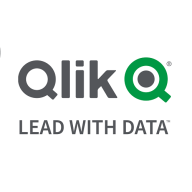

Qlik Compose and SAP Analytics Hub are competitive products in the data management and analytics space. Qlik Compose often has an edge with its pricing and support, whereas SAP Analytics Hub excels in advanced features that justify its higher cost for more comprehensive analytics capabilities.
Features: Qlik Compose is user-friendly and intuitive, offering ETL and data integration, real-time replication, and automation in warehouse design with drag-and-drop functionality. SAP Analytics Hub provides strong data capacity handling, powerful tools like SAP Data View, HANA, and BO configuration, as well as seamless integration with other SAP products, ensuring data consistency and ease of use.
Room for Improvement: Qlik Compose could enhance its graphical representation tools and expand data integration capabilities. Additionally, enriching its real-time replication features and adding advanced analytics tools could be beneficial. SAP Analytics Hub can improve by offering more flexibility in report scheduling, reducing integration complexity, and enhancing user training to fully leverage its extensive functionalities.
Ease of Deployment and Customer Service: SAP Analytics Hub features a comprehensive cloud deployment model, offering flexibility and scalability, supported by strong customer service, making it suitable for large enterprises. Qlik Compose provides a straightforward on-premise deployment model with adequate support channels, effectively catering to smaller businesses seeking rapid implementation and straightforward support services.
Pricing and ROI: Qlik Compose offers a lower setup cost, facilitating quick ROI through its streamlined processes, making it appealing for cost-efficient operations. SAP Analytics Hub, while requiring a higher initial investment, delivers substantial ROI with its extensive analytic tools and integrations, thus appealing to organizations investing in detailed data strategies.


Qlik Sense is a powerful business intelligence tool that offers a range of features to help organizations make faster and more informed decisions. Its primary use cases include operational and financial dashboards, self-service reporting, and centralized access to cross-functional reports. The solution is praised for its mobile platform, ease of use, data-sharing capabilities, and extensibility.
Qlik Sense has helped organizations improve data literacy, reduce time consumed in complex reports, and provide widely available MI to senior stakeholders. It also enables self-service analytics, improves data quality and governance, enhances collaboration, and reduces costs.
SAP Analytics Hub simplifies access to analytics scattered across multiple heterogeneous environments. The solution recommends the best analytics to fit personalized needs and grants users with actionable insights without compromising agility.
We monitor all Data Integration reviews to prevent fraudulent reviews and keep review quality high. We do not post reviews by company employees or direct competitors. We validate each review for authenticity via cross-reference with LinkedIn, and personal follow-up with the reviewer when necessary.